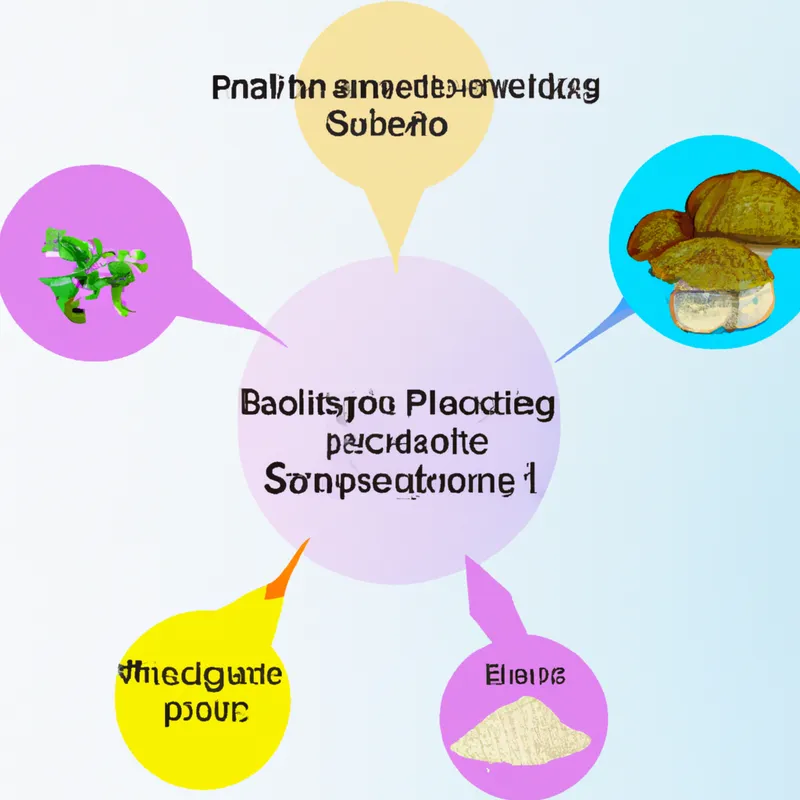Uncover Mycelium: Nature’s Hidden Protein Powerhouse
The Science Behind Mycelium: Exploring Fungal-Based Protein Sources and Their Nutritional Benefits
Mycelium has emerged as a sustainable protein source in recent years. This fascinating fungus forms mushrooms’ root structure and plays a vital role in ecosystems. Researchers and food enthusiasts now explore its potential in our diets. This post examines mycelium’s science, nutritional benefits, and its importance as a protein source.
Understanding Mycelium
Mycelium consists of a network of thread-like structures called hyphae. These hyphae absorb nutrients from the environment. Mycelium functions like a plant’s root system, breaking down organic matter and recycling nutrients into the soil. This ecological role highlights its importance as a decomposer and contributor to soil health.
Mycelium grows quickly and efficiently. Farmers cultivate it on various agricultural waste products, such as straw, sawdust, and coffee grounds. This sustainable protein option minimizes resource use. Consequently, mycelium has become a focal point for researchers and companies developing alternative protein sources, especially due to concerns over animal agriculture’s environmental impacts.
Nutritional Profile of Mycelium
Mycelium offers a rich source of protein, fiber, and essential nutrients. Typically, it contains around 25% to 35% protein by dry weight, comparable to traditional meat sources. This high protein content makes mycelium valuable for vegetarians, vegans, and anyone reducing meat consumption. Additionally, mycelium is low in fat and calories, making it an excellent choice for healthier diets.
Mycelium also provides B vitamins, such as riboflavin and niacin, which support energy metabolism and overall well-being. Moreover, mycelium contains minerals like potassium, phosphorus, magnesium, and iron. This diverse nutritional profile makes mycelium a valuable plant-based protein source.
Health Benefits of Mycelium
Integrating mycelium into your diet offers numerous health benefits. Its high protein content supports muscle growth and repair, benefiting athletes and fitness enthusiasts.
Mycelium also contains antioxidants, which combat oxidative stress in the body. These antioxidants can reduce inflammation and promote overall health, potentially lowering chronic disease risks such as heart disease and diabetes.
Additionally, mycelium is rich in beta-glucans, a soluble fiber that supports gut health. This fiber aids digestion and helps regulate blood sugar levels by slowing carbohydrate absorption. A healthy gut microbiome is crucial for overall health, and mycelium’s fiber supports it.
Conclusion
Mycelium offers a sustainable, nutritious protein option. Its health benefits and ecological role make it a valuable addition to modern diets.
Below are related products based on this post:
FAQ
What is mycelium and why is it considered important?
Mycelium is the root structure of mushrooms, consisting of a network of thread-like structures called hyphae. It plays a vital ecological role by breaking down organic matter, recycling nutrients into the soil, and contributing to soil health. Its ability to grow quickly and efficiently on agricultural waste makes it a sustainable protein source, especially in light of environmental concerns surrounding traditional animal agriculture.
What nutritional benefits does mycelium provide?
Mycelium is a rich source of protein, containing approximately 25% to 35% protein by dry weight, which is comparable to traditional meat sources. It is low in fat and calories and contains essential B vitamins, such as riboflavin and niacin, as well as minerals like potassium, phosphorus, magnesium, and iron. This diverse nutritional profile positions mycelium as a valuable plant-based protein option for various diets.
How can mycelium contribute to better health?
Integrating mycelium into your diet can offer numerous health benefits, including supporting muscle growth and repair due to its high protein content. Mycelium also contains antioxidants that help combat oxidative stress and reduce inflammation, potentially lowering the risk of chronic diseases such as heart disease and diabetes. Furthermore, its rich fiber content, particularly















Post Comment